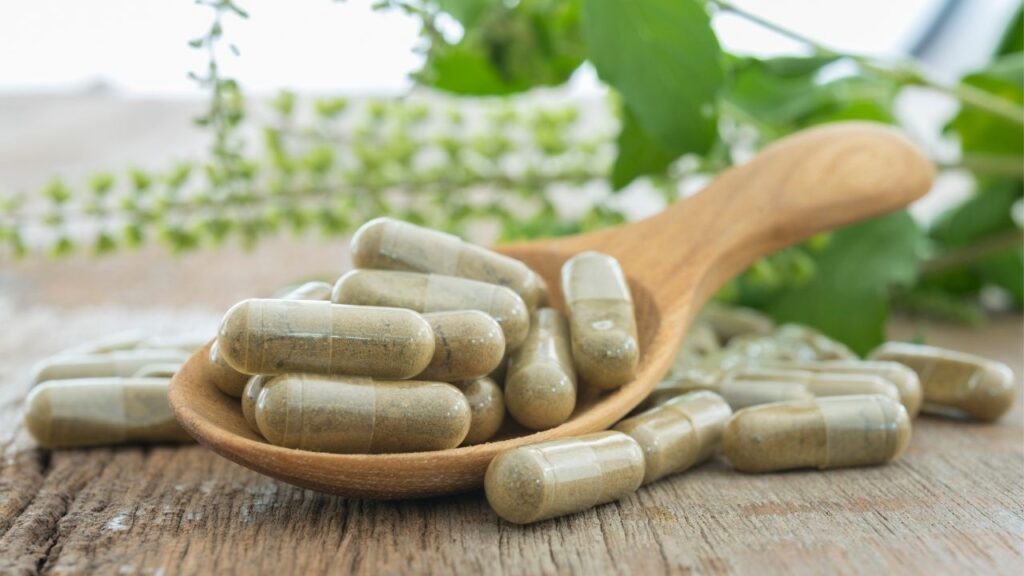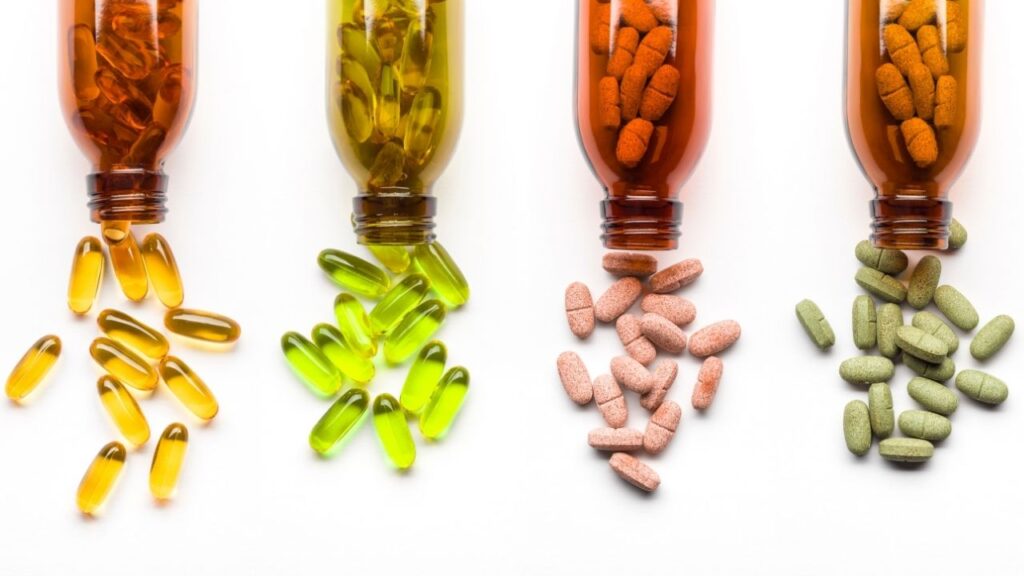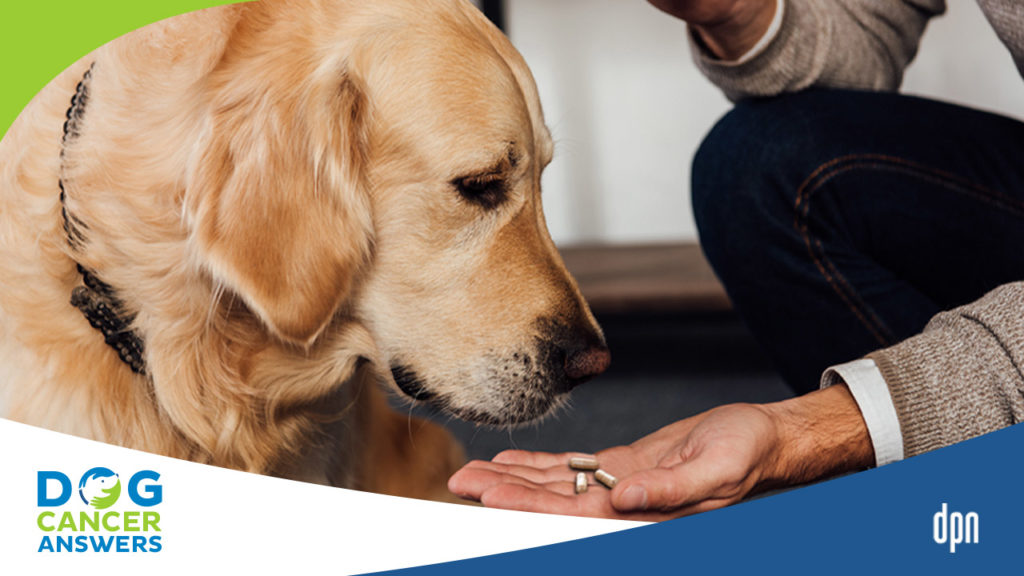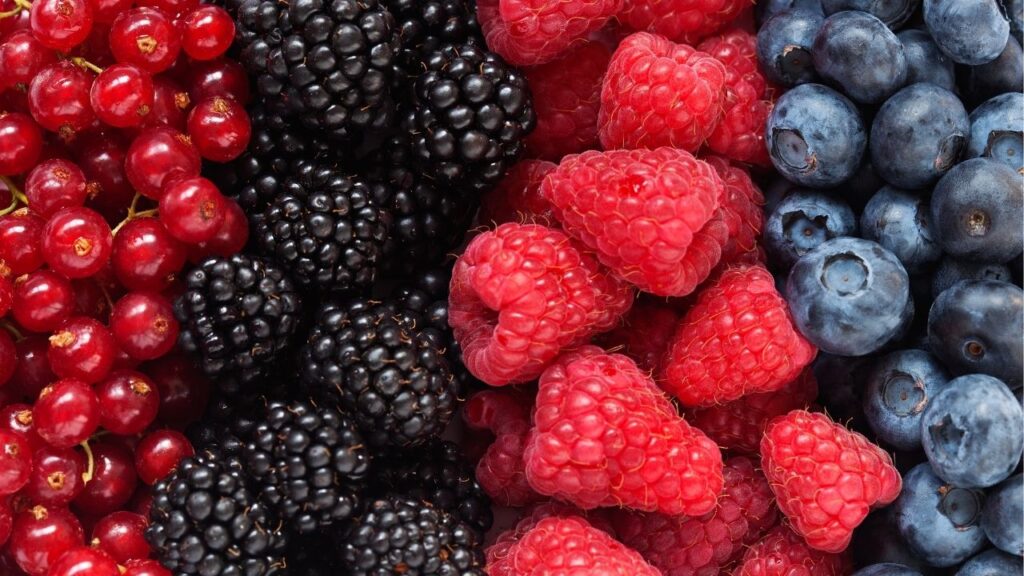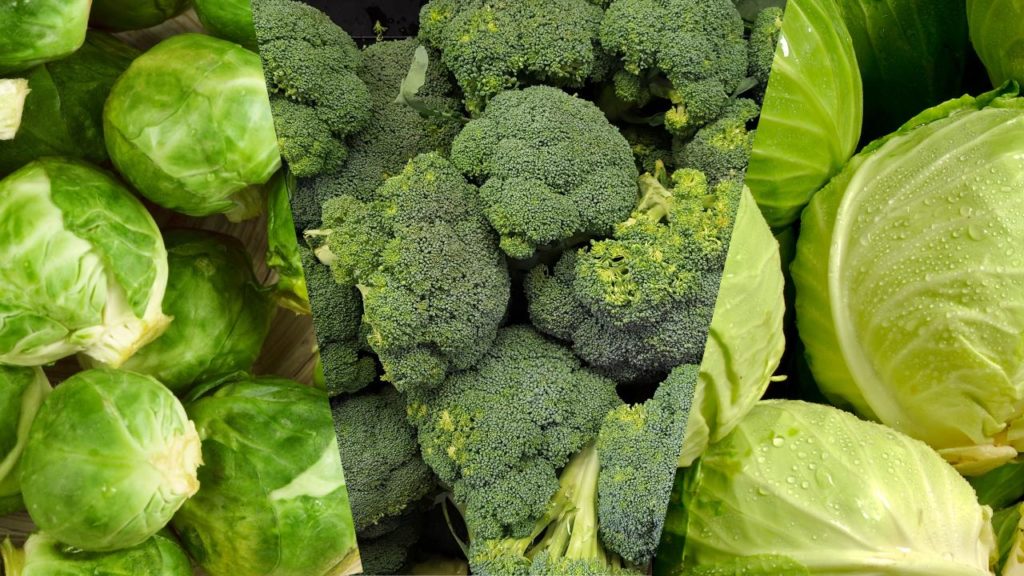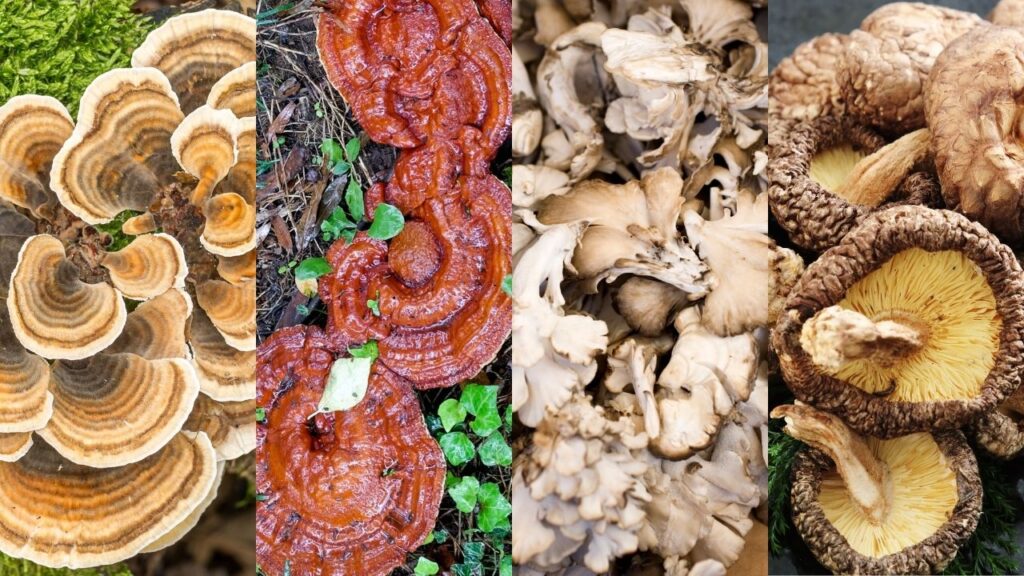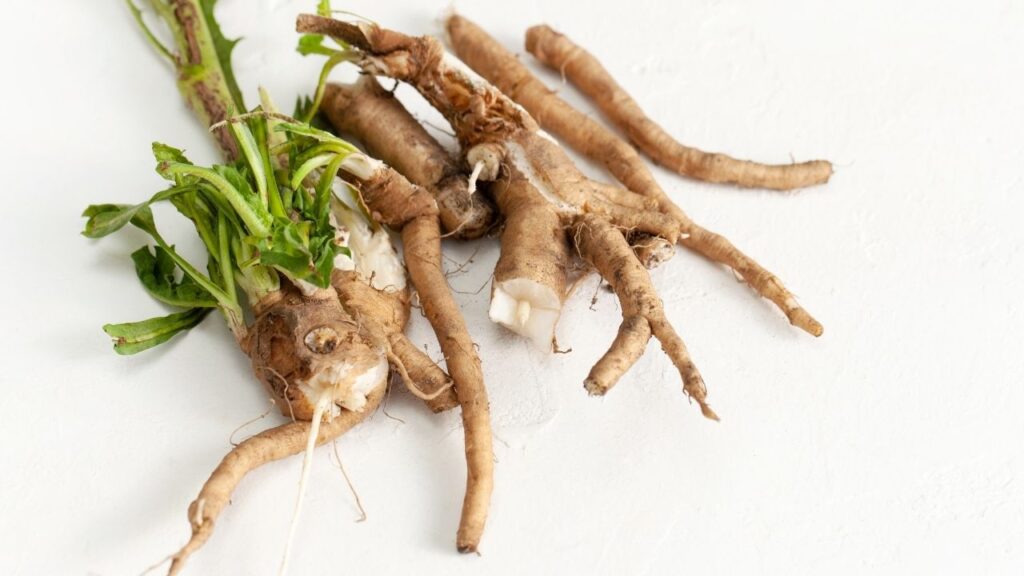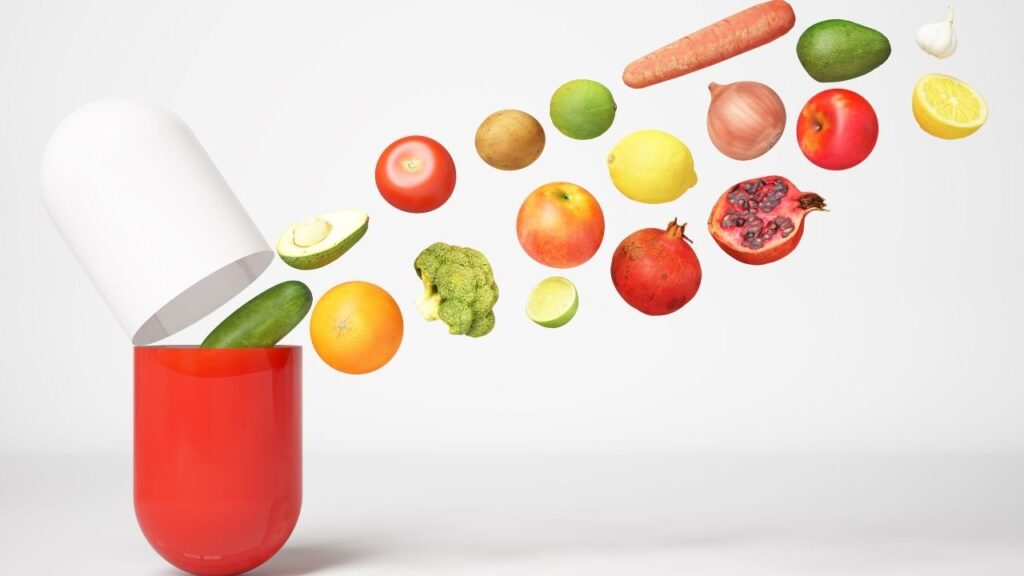Antioxidants are natural compounds found in many common fruits and vegetables. They can reduce free radicals and minimize the oxidative stress that contributes to canine cancer. Adding antioxidants to a dog’s diet is an easy way to provide nutritional support for cancer therapy.
Key Takeaways
- Antioxidants can help dogs, especially when they are found in food.
- The strongest natural antioxidants include vitamin A, vitamin C, vitamin E, lipoic acid, uric acid, and carotene.
- Antioxidants may be helpful for your dog with cancer but talk to your vet before starting an antioxidant supplement.
- The top five antioxidant foods for dogs are blueberries, blackberries, raspberries, strawberries, and broccoli.
What Are Antioxidants?
You have probably heard the word “antioxidant” many times by now, because it’s used commonly in marketing and in the news. But what are antioxidants, really? The term antioxidant is used to describe a wide range of chemicals that all act to neutralize free radicals in the body.
Antioxidants Counteract Free Radicals
Free radicals are unstable molecules that can create havoc as they try to become stable. You have probably heard about free radicals because they are often discussed in marketing for supplements. They aren’t inherently bad; they are a normal part of life and are produced by your dog’s metabolism.2 They can also form as a result of injury or toxic exposure from the environment.2
While there are always some free radicals in the body due to normal metabolism and repair mechanisms, high levels of free radicals can cause damage to cells and genetic material in the body.
This effect is called oxidative stress and is linked to many chronic diseases, including cancer. Antioxidants are named for their quality of being “anti,” or “against” “oxidants,” or “oxidative stress.”
Antioxidants neutralize free radicals and reduce oxidative stress. They are also sometimes called “free radical scavengers” because they neutralize free radicals.
Antioxidants: “anti,” or “against” + “oxidants,” or “oxidative stress”
Common Antioxidants
Any chemical that neutralizes free radicals is considered an antioxidant. Common antioxidants that you may recognize include:
- Vitamin A
- Vitamin C
- Vitamin E
- Lipoic acid
- Uric acid
- Carotene
- Colostrum
- Coenzyme Q
Thinking about IV vitamin C for your dog? Dr. Nancy Reese examines the research on this interesting approach on DOG CANCER ANSWERS.
Common Dietary Sources of Antioxidants
Dark green leafy vegetables, yellow-orange fruits, and dark berries are often excellent sources of antioxidants.
Fresh foods tend to contain higher levels of antioxidants because cooking and preservation for food storage can result in the breakdown of these compounds.
You can also purchase antioxidant supplements to introduce antioxidants into your dog’s diet, although there are several things to consider, as you will see.
Demonstrated Benefits of Antioxidants
As discussed above, antioxidants play a role in minimizing the effects of chemicals called free radicals in the body, which can help to prevent or treat cancer.
In vitro (in petri dish) lab experiments have shown that the presence of antioxidants can cause a decrease in cancer development and an increase in cancer cell death.
But just because something can kill cancer cells in a laboratory setting doesn’t mean it will work the same in a living body. Let’s look at some in vivo (in living body) studies.
Antioxidants and Cancer
Nine randomized, controlled clinical trials have been done in humans looking at antioxidants and cancer. These trials all focused on antioxidant supplements of various types rather than antioxidant-rich foods.
Results over the nine trials were underwhelming, with most finding no impact from the antioxidants on people’s risk of developing cancer or the likelihood that they would survive it.2
So it seems that taking antioxidant supplements does not directly help treat cancer itself.
Antioxidants and Chemotherapy
However, a review of 174 studies that looked at antioxidants and chemotherapy had better news. This review found that antioxidants can help prevent negative side effects from chemotherapy, by protecting normal cells from damage.3
Taking antioxidants during chemotherapy also seemed to help make the chemo more effective, and even increased survival times in some cases.3
This may surprise you, because the role of chemotherapy is to increase free radicals, in an attempt to kill cancer cells. If antioxidants are taken, wouldn’t that reduce the free radicals available to kill cancer cells? This is the stance that many oncologists usually take with both chemotherapy and radiation (which also creates free radicals).
Practitioners worry that giving antioxidants might protect the normal and cancer cells.
Although some studies have found this true,5,6 this only holds up for antioxidant supplements.
Antioxidant supplements might interfere with chemotherapy and radiation, but dietary levels are unlikely to interfere.
Antioxidant Supplements Vs. Antioxidant-Rich Diet
Feeding your dog antioxidant-rich foods is unlikely to interfere with cancer treatments.5
As noted above, antioxidant-rich foods may even help protect your dog’s normal cells from the side effects of chemotherapy and radiation.
If your dog is undergoing chemotherapy or radiation, discuss antioxidants with your oncologist before using them.
Feeding antioxidant-rich foods should be perfectly safe for most dogs, but your veterinarian may (reasonably) recommend avoiding supplements that contain more than everyday dietary levels of antioxidants (such as a multivitamin).
Common Uses of Antioxidants for Dogs
Veterinarians use antioxidants for several reasons. Some common uses for dogs include:6
- Part of treatment strategies for many types of cancer and chronic diseases.
- To minimize side effects from chemotherapy.
- To support the immune system.
Dr. Demian Dressler discusses his approach to supplements on DOG CANCER ANSWERS.
Safety and Side Effects
Antioxidants can sometimes have negative effects.2
- High doses of potent antioxidants can bind to other dietary nutrients, such as iron or zinc, in the gastrointestinal tract and prevent them from being absorbed.
- Large doses of vitamin A can turn skin an orange color.
- Antioxidants have been shown in a few pre-clinical studies to increase tumor growth and metastasis through an increase in circulating neoplastic (cancer) cells.
- High doses of a single antioxidant can cause toxicity in some cases.
To avoid toxicity from individual antioxidants, use a pre-made supplement blend to help avoid accidental overdose. Blends are usually carefully calibrated for a dog’s normal dietary needs, especially when formulated by veterinarians, rather than human supplement manufacturers.
When adding antioxidants through fresh or cooked whole foods, slowly add the new food item to your dog’s diet to avoid stomach upset. (This is always a good rule of thumb when adding new foods to a dog’s diet.)
Using Antioxidants with Other Supplements and Treatments
Antioxidants, either as supplements or whole foods added to the diet, can be given with most medications. However, checking with your veterinarian prior to starting is recommended.
If your dog is undergoing chemotherapy or radiation, definitely talk to your oncologist before giving a supplement that provides doses of antioxidants beyond normal dietary levels.
When to Not Use Antioxidants for Dogs
As discussed above, the effects of antioxidants on “oxidative stress” are relatively well known, but the exact impact of antioxidants on chemotherapy and cancer treatment is less clear. There has been some concern about the use of antioxidants with some specific chemotherapies that rely on oxidative stress and free radicals to kill cancer cells.
Overall, studies have shown that there is not a significant decrease in the effectiveness of chemotherapy when used with antioxidants.3
Antioxidants with chemotherapy may even minimize some of the side effects of chemotherapy, increasing the patient’s quality of life.3
That said, chemotherapy is expensive. Lower doses are used in dogs than in people, so lowering the effectiveness of this expensive treatment by even a little bit may not be desired. Most oncologists don’t recommend antioxidants with chemo or radiation for dogs for this reason: why spend lots of money on treatment and then lower its effectiveness even a little?
Waiting to give antioxidants until later on, or between sessions, is sometimes recommended.
It’s also worth noting that high levels of some specific antioxidant compounds can cause unwanted and potentially dangerous side effects. For example, vitamin E supplementation should not be taken with blood thinner medications.
Does Vitamin E make chemotherapy not work? Dr. Nancy Reese explains on DOG CANCER ANSWERS.
Antioxidant-Rich Food for Dogs
Whole foods give your dog various antioxidants, often in unknown or variable concentrations and amounts.2 Nutritional content of food varies widely due to harvesting methods, seasons, and weather conditions, for example.
However, certain foods are generally higher in antioxidants than others. Some foods that are safe for your dog to eat and contain antioxidants include:
- Blueberries, Blackberries, Raspberries, and other dark berries
- Strawberries
- Cooked squash
- Carrots
- Sweet potatoes
- Broccoli
- Red bell peppers
- Spinach
- Kale
- Green beans
- Tomatoes
- Mangoes
Antioxidant Supplements for Dogs
Antioxidants can also be purchased as individual supplements or in products that contain a combination of antioxidants. As noted above, blends designed for dogs that include normal dietary levels of antioxidants are generally safer than potent standalone antioxidants. Any supplement you use should be discussed with your veterinarian first, especially individual antioxidant supplements.
Supplements from whole foods like colostrum often contain several different antioxidants, including glutathione, vitamin E, vitamin C, and beta-carotene.8 Follow the dosing instructions for the particular product that you purchase for your dog.
It is not recommended to give more than the labeled or prescribed dose of any antioxidants. As you can tell from the rest of this article, more antioxidants are not necessarily better than normal amounts.
The bioavailability of antioxidants can be affected by their preparation and processing. Many supplements are labeled for human use, so your pet’s appropriate dosing may differ. Consult your veterinarian for the appropriate therapeutic dose.
Most antioxidant supplementation is given daily for long-term use.
What If I Miss a Dose?
If you miss a dose of an antioxidant supplement, continue with the next scheduled dose as prescribed. Missing a dose is unlikely to have harmful effects.
Storage and Handling
Refer to the specifics for each supplement listed on its packaging.
Generally, most antioxidants should be kept tightly sealed, dry, and away from heat and direct sunlight.
Store food items the same way you would if you were going to eat them.
Our Take on Antioxidants for Dogs
Antioxidants are relatively easy to incorporate into a dog’s cancer therapy without significant interactions or side effects from their current medications, as long as you focus on normal dietary levels, not therapeutic levels (which should be supervised by your veterinarian).
Antioxidant-rich foods are excellent, safe ways to help your dog.
Giving your dog foods rich in antioxidants is an excellent choice. Foods can easily be incorporated into your dog’s diet or as an extra snack or topper. Treats and toppers should be no more than 10% of your dog’s diet to avoid unbalancing it.
If you are considering giving your dog an antioxidant supplement, discuss it with your oncologist and any other veterinarians involved in your dog’s care to ensure all parties are fully informed on which treatments are being administered.
Topics
Did You Find This Helpful? Share It with Your Pack!
Use the buttons to share what you learned on social media, download a PDF, print this out, or email it to your veterinarian.
